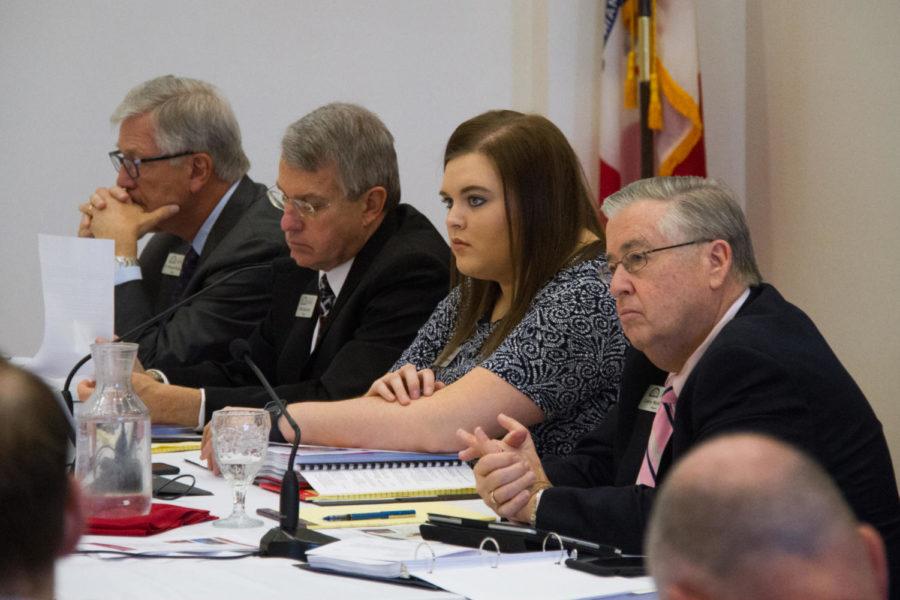Editorial: Board of Regents inadequate funding support
Regents Michael Richards, Milt Dakovich, Rachel Johnson, and Larry McKibben (L-R) listen to Iowa School for the Deaf superintendent Steve Gettel speak during a Board of Regents meeting, Feb. 23 in the Alumni Center.
September 13, 2017
The Board of Regents has been criticized frequently. Recently, Ron Corbett, the mayor of Cedar Rapids, added to those criticisms by calling for its abolishment in favor of separate trustees for each regents’ institution. Abolishment may be extreme, but a critical review is certainly in order.
While the board serves many functions, students are most affected by the role regents play in lobbying the state legislature and setting tuition rates. As our primary advocates in the state legislature, the regents play a key role in obtaining state funding. A look at their record shows that the regents have not been successful in obtaining state appropriations commensurate with higher student enrollments and cost of living increases. Instead, students and their families pay even larger tuition bills.
What is the Board of Regents’ record over the last 17 years? In 2000, ISU received $274 million from the state, an amount which dropped to $252 million in 2016, the last year for which audited financial statements are available.
Over the same period, ISU received tuition revenue of $109 million in 2000, and by 2016 that figure had more than tripled to $329 million. Since 2000, student enrollment has increased 37 percent and general inflation by 39 percent.
Clearly, the burden of paying for higher education has shifted significantly from the general public to students. So if we were to evaluate the regents entirely on their success at representing the interests of higher education in the state legislature, securing funding and keeping tuition affordable, then they receive a failing grade.
In light of the reduced financial support universities receive from the regents, we would support a reduction of the board’s oversight powers. But endorsing the end of the board structure seems premature for several reasons.
First, during this 17 year period, Iowa’s legislature has enacted several major tax cuts, which have required reductions in many expenditures. It is not clear that trustees would be able to squeeze any more than the regents have from a legislature intent on reducing state revenues.
Secondly, having separate sets of trustees competing for only their own institution could result in more politicized appropriations than we have currently.
While the regents are not entirely responsible because Iowa no longer honors its historically strong commitment to education, examining the regents’ role in university governance and carefully studying alternative structures are both welcome.







